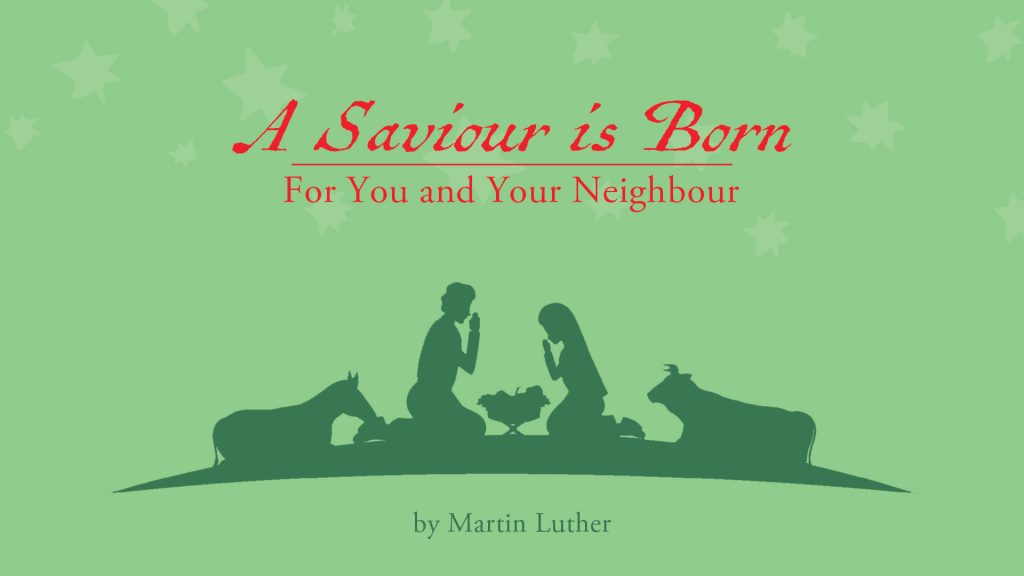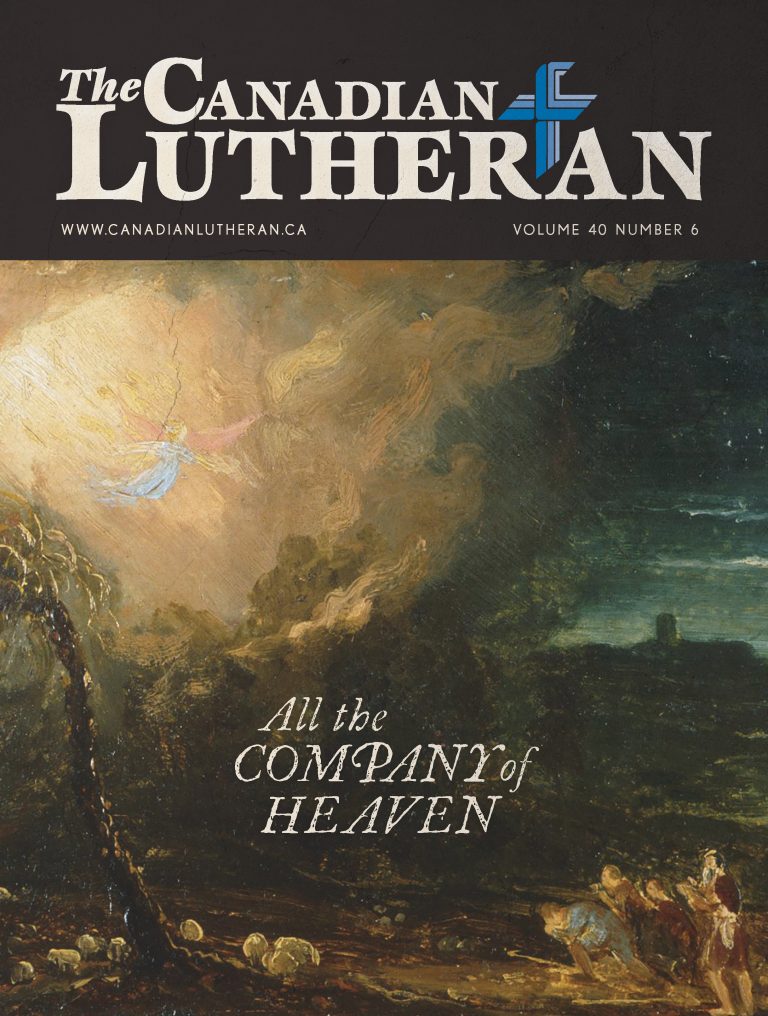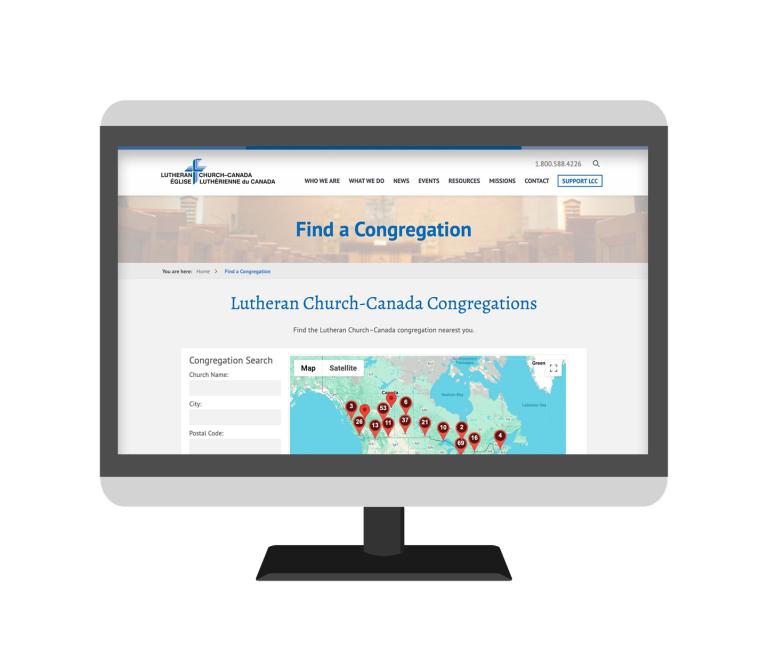A Saviour is Born—For You and Your Neighbour

Illustration: grgroup, Adobe Stock.
by Martin Luther
Christ for You
It is of no value merely to believe that the story of the birth of Jesus is true as it is written. The right and gracious faith which God demands is that you firmly believe that Christ is born for you and that this birth took place for your welfare. The Gospel teaches that Christ was born, and that He did and suffered everything on our behalf, as is declared by the angel: “Behold, I bring you good tidings of great joy which shall be to all the people; for there is born to you this day a Saviour, who is Christ the Lord.” In these words, you clearly see that He is born for us.
He does not simply say “Christ is born” but “to you He is born.” Neither does he say “I bring glad tidings” but “to you I bring glad tidings of great joy.” Furthermore, this joy “shall be to all the people.”
Christ has a pure, innocent, and holy birth. Man has an unclean, sinful, condemned birth. As David says: “Behold I was brought forth in iniquity, and in sin did my mother conceive me.” Nothing can help our unholy birth except the pure birth of Christ. But Christ’s birth isn’t distributed to us in a material sense; it is instead imparted spiritually through the Word. It is given to all who firmly believe. This is the way and manner in which we are to be cleansed from the miserable birth we have from Adam. For this purpose, Christ willed to be born—that through Him we might be born again.
We see here how Christ, as it were, takes our sinful birth from us and absorbs it in His birth; and how He grants us His birth, that in it we might become pure and holy as if it were our own. As a result, every Christian may rejoice and glory in Christ’s birth. This is the great joy of which the angel speaks. This is the comfort and exceeding goodness of God.
Christ must above all things become our own and we become His, before we can do good works. But this cannot occur except through a faith which teaches us how to understand the Gospel correctly and how to lay hold of it. This faith is the only way in which Christ can be rightly known, so that our consciences are satisfied and made to rejoice. Out of this faith grow love and praise to God who in Christ has bestowed upon us such unspeakable gifts. This is what is meant by Isaiah 9:6: “Unto us a Child is born, unto us a Son is given.” To us is born this Child. To us is given this Son.
This faith is the only way in which Christ can be rightly known, so that our consciences are satisfied and made to rejoice.
Therefore, see to it that you do not regard the story of Christ’s birth only as a historical event. But see to it that you make this birth your own and that Christ be born in you. You must exercise this faith and pray continually during your life; you cannot establish it too firmly.
Behold here what the Gospel is: a joyful sermon concerning Christ, our Saviour. Whoever preaches Him rightly, preaches the Gospel of pure joy. How is it possible for man to hear of greater joy than that Christ has been given to him as his own?
The Gospel does not only teach the history concerning Christ’s birth; but it further enables all who believe it to receive it as their own. Of what benefit would it be to me if Christ had been born a thousand times and the news were sung daily into my ears if I never further heard that He was born for me and was to be my very own? If the voice gives forth this pleasant message—even if it be in a simple way—my heart listens with joy, for it is a lovely sound which penetrates the soul.
Therefore, let us beware of all teaching that does not set forth Christ. What more do you want to know? What more do you need, if indeed you know Christ? He lies in the manger. And we are the beasts before this manger. Christ is laid before us, upon whom we are to feed our souls. Whosoever goes to hear true preaching must go to this manger: the preaching of Christ.
Christ for Your Neighbour
No one is to hear the Gospel for himself alone, but—like the shepherds—everyone is to tell it to others who are not acquainted with it. For he who believes for himself has enough, and should endeavor to bring others also to faith—so that one may be a shepherd to the other, to wait upon and lead him into the pasture of the Gospel in this world.
Christ has become your own, and you have by such faith been cleansed through Him. You have received your inheritance without any personal merit on your part but solely through the love of God, who gives to you as your own the treasure and work of His Son. It follows, then, that you ought to do good works, by serving your neighbour as Christ has served you. What are the good works of Christ? Is it not true that you call them “good” because they have been done for your benefit, God commanding Christ to do the works on your behalf? In this, then, Christ was obedient to the Father, in that He loved and served us. Therefore, since you have received so much from Him and become rich, you have no other commandment to serve Christ and render obedience to Him than to direct your works that they may be of benefit to your neighbour—just as the works of Christ are of benefit and use to you.
For this reason, Jesus said at the Last Supper: “This is My commandment: that you love one another, even as I have loved you” (John 13:34). Here it is seen that He loved us and did everything for our benefit, in order that we may do the same—not to Him (for He does not need it) but to our neighbour. This is His commandment. This is our obedience.
It is through faith that Christ becomes our own, and His love is the cause that made us His.
It is through faith that Christ becomes our own, and His love is the cause that made us His. He loves and we believe—and thus our faith and His love are united in one. In the same way, our neighbour believes and expects our love, and we are therefore to love him in return and not let him long for it in vain. As Christ helps us, we in turn help our neighbour, and so all have enough.
There are many who, enkindled with dreamy devotion when they hear of the poor circumstances of Christ’s birth, are almost angry with the citizens of Bethlehem and think, “If we had been there, we would have shown the Lord and His mother greater kindness!” But at the same time, we fail to look around us to see how many of our fellow men today need our help—people whom we let go on in their misery unaided. Who is there upon earth who has no poor, sick, or sinful neighbours around him? Why do we not show our love for them? Why do we not do to them as Christ has done to us?
If you see your neighbor going astray, sinning, or suffering in body or soul, you are to leave everything else and at once help him in every way in your power—and if you can do no more, help him with words of comfort and prayer. Thus has Christ done to you and given you an example for you to follow.
 These are the two things in which a Christian is to exercise himself: first, that he draws Christ into himself, and that by faith he makes Him his own, appropriates to himself the treasures of Christ, and confidently builds upon them. And then, secondly, the Christian condescends to his neighbour and lets him share in that which he has received, even as he shares in the treasures of Christ.
These are the two things in which a Christian is to exercise himself: first, that he draws Christ into himself, and that by faith he makes Him his own, appropriates to himself the treasures of Christ, and confidently builds upon them. And then, secondly, the Christian condescends to his neighbour and lets him share in that which he has received, even as he shares in the treasures of Christ.
———————
This article is condensed from Martin Luther’s “Christmas Day” sermon in his Church Postils. It is lightly adapted from John Nicholas Lenker’s 1905 translation.






